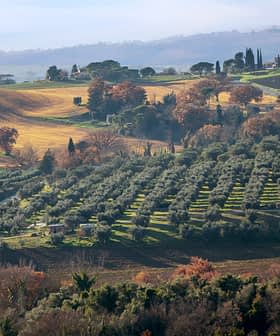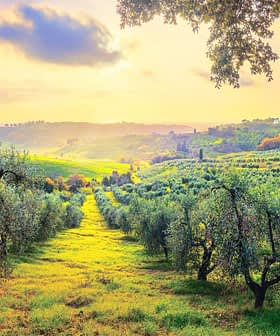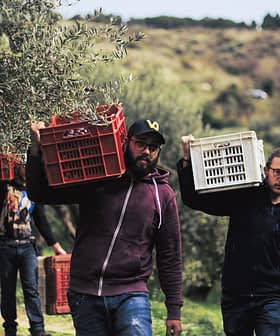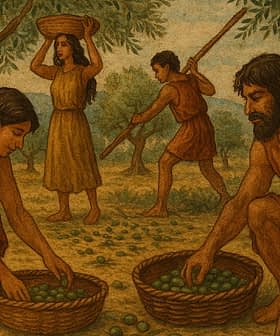Fire in Tuscan Countryside, Thousands of Olive Trees Up in Smoke
A massive wildfire on Mount Serra, in the province of Pisa, devastated a huge area of woodland and ten thousand olive trees.
A wildfire broke out on Mount Serra in Tuscany, destroying over 1,000 hectares of land and threatening hundreds of homes, with initial reports suggesting the fire was deliberately set. The blaze caused significant damage to the local economy, agriculture, and wildlife, leading to long-term impacts on the region’s producers and environment.
A wildfire broke out on Mount Serra, in the provinces of Pisa, in Tuscany, in the late evening of Monday, September 24. The flames swept through a wooded area for three days, destroying the vegetation and threatening at least two hundred houses, a few of which were severely damaged.
This event will affect the producers of the area for a long time, especially the smaller and less structured farms.
Fortunately, there have been no reports of death or injuries, while some seniors were taken to Cisanello Hospital in Pisa as a precaution. About 700 people were evacuated from their homes in the territories of Calci and Vicopisano, including the villages of Montemagno, Fontana Diana, San Lorenzo, Noce, Nicosia and Crespignana, and were received in rescue centers set up by the municipalities of the area. Disruptions were registered in Cascina and other rural districts.
More than one hundred ground units of the Vigili del Fuoco (the Italian fire department), worked tirelessly with groups of volunteers to extinguish the fire, joined by Canadair firefighting aircraft and helicopters, including an S64 air-crane.
First reports of firefighters suggest that the blaze was likely deliberately set. “We have decided to open a file featuring the hypothesis of arson on the basis of some clues that must now be confirmed by investigative action,” the chief prosecutor of Pisa, Alessandro Crini, told Ansa. The fire started spreading at night, and its front moved quickly through the scrub, favored by a strong north wind.
The blaze destroyed more than 1,000 hectares (2,471 acres) of land, which included olive trees, vines, chestnuts and many other plant species, not to mention the wildlife. It may take years to restore the biodiversity of the territory, and this is compounded by the immediate damages to the economy, work and tourism of the area.

“The costs for the emergency action to extinguish the fire on the ground and by aircraft, and for the evacuation, must be added to those for the reconstruction of the forest heritage,” said Tullio Marcelli, the president of Coldiretti Toscana.
The producer organization estimated that about ten thousand olive trees, including secular ones, have been destroyed along with other crops, while farms and rural homes have been compromised, with damage to agriculture of about €6 million. Following the initial emergency, olive trees will be replanted, and it will take at least five years to enter the production phase.
In the affected areas, all the traditional human activities such as collecting wood, chestnuts, small fruits, and mushrooms will be prohibited for years to promote the regeneration of the environment.
“This event will affect the producers of the area for a long time, especially the smaller and less structured farms,” Confagricoltura Pisa’s president, Alessandro Stassano affirmed, pointing out that growers will suffer a loss of several tons of olive oil.
Francesco Miari Fulcis, the president of Confagricoltura Toscana said, “it is still early to draw up a definitive budget as the damage will have a long-lasting impact. However, our association has already taken steps in order to support and help producers in restarting their agricultural activities.”
The Tuscany-based newspaper La Nazione, in collaboration with the Toscana Region, launched the Adopt a Tree” initiative, calling upon its readers to contribute to the reconstruction of the Mount Serra woodland and its biodiversity heritage. Anyone who wants to help can contact the Toscana Region. Donations will be used for the purchase of new trees which will be planted in the affected area.









